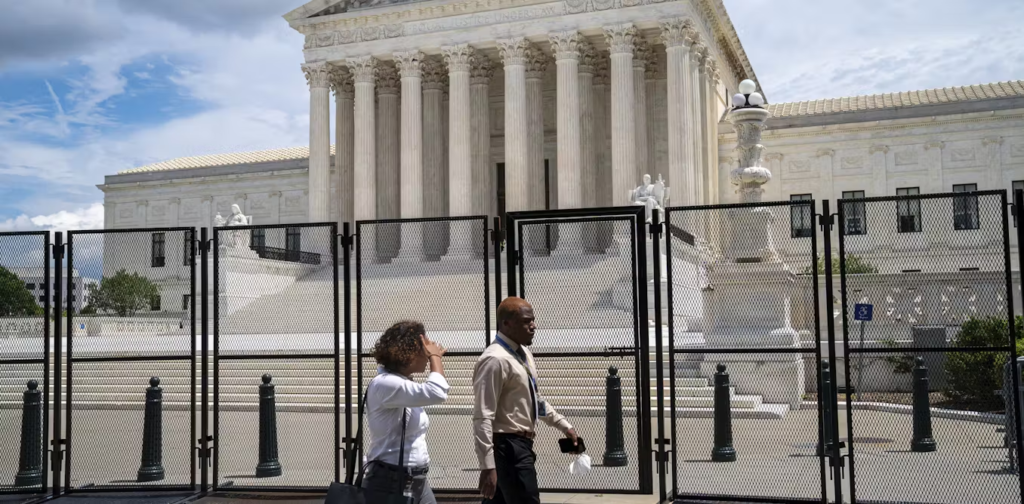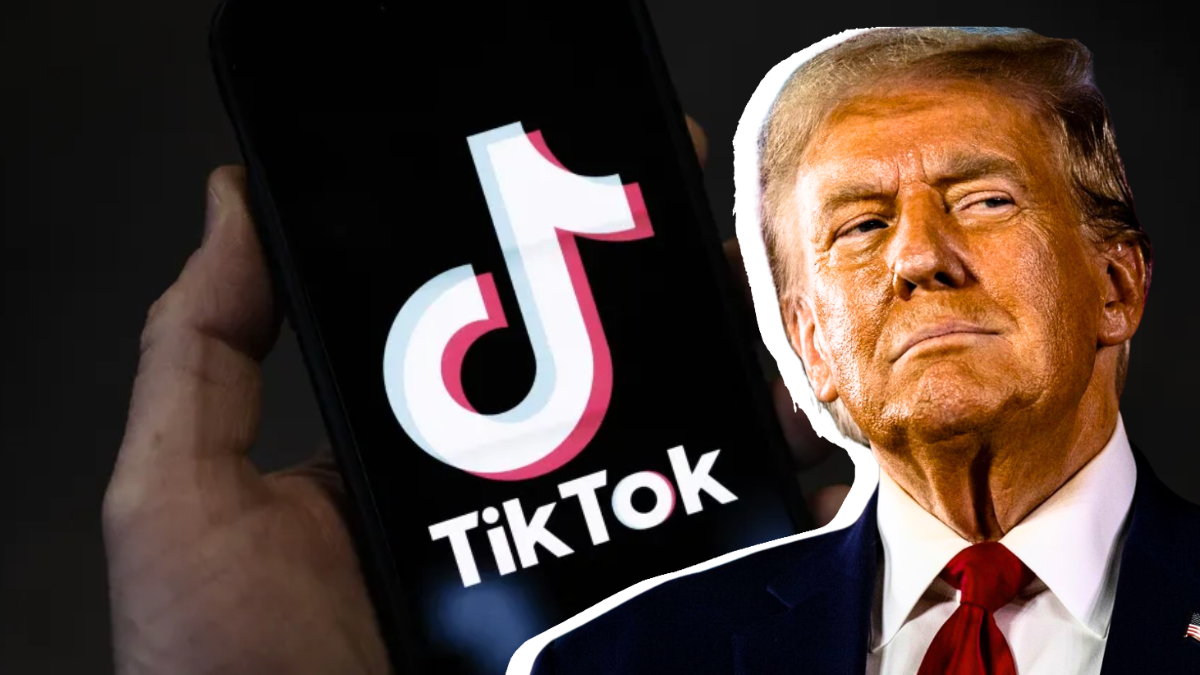The TikTok ban saga in the United States is approaching a critical juncture, with the Supreme Court set to deliberate on its future. The decision could have significant implications for millions of users, social media influencers, and national security policies. The key question—“Is TikTok getting banned in the US?”—remains unresolved, sparking intense debate across political and social circles.
The Supreme Court’s Special Session

The Supreme Court will hold a special session to address the controversial TikTok ban. The hearing focuses on two primary cases—TikTok v. Garland and Firebaugh v. Garland. These cases explore whether the U.S. government’s demand for ByteDance, TikTok’s parent company, to sell or shut down operations infringes upon First Amendment rights. TikTok argues that the government’s concerns over national security are speculative and lack substantive evidence.
Follow us on our Official WhatsApp channel
In its defense, TikTok emphasizes its role as a platform for free speech. With over 170 million American users, the app is a cultural phenomenon, offering everything from political discourse to creative expression. The company’s legal team asserts that the ban undermines these rights, effectively silencing millions of voices without just cause.
Trump’s Role in the TikTok Debate
Former President Donald Trump’s recent brief to the Supreme Court adds another layer of complexity to the TikTok ban decision. Trump, a prolific user of social media, has highlighted TikTok’s unique position as a platform for freedom of expression. He has called for a delay in implementing the ban, emphasizing the need for a politically negotiated resolution.
Trump’s brief underscores his belief in TikTok’s value as a communication tool while acknowledging the national security concerns raised by lawmakers. He argues that the decision should be postponed to allow for a diplomatic approach, balancing security needs with the platform’s role in fostering free speech.
National Security Concerns
The Biden administration and several lawmakers have cited TikTok’s ties to China as a major concern. ByteDance, TikTok’s parent company, is headquartered in Beijing, raising fears about potential data harvesting and covert influence campaigns. The administration argues that the platform’s access to sensitive user data poses a significant risk, particularly given China’s reputation for leveraging tech platforms in geopolitical conflicts.
[RELATED: Why You Should Power Off Your Phone Weekly – NSA Advice]
Proponents of the ban believe it is a necessary step to safeguard national security. “The risks associated with TikTok are not hypothetical,” a government brief stated. “The platform’s ownership structure makes it vulnerable to manipulation by foreign adversaries, compromising the safety and privacy of American citizens.”
Free Speech vs. National Security
The case highlights a fundamental tension between protecting national security and upholding free speech rights. Legal experts note that this is the first time a social media platform has faced such sweeping action, making the outcome particularly consequential. Critics argue that banning TikTok sets a dangerous precedent, potentially stifling innovation and limiting access to global platforms.
TikTok’s legal team has repeatedly emphasized its independence from the Chinese government, particularly in light of the TikTok ban decision. The company claims that its U.S. operations are majority-owned by global investors, distancing itself from Beijing’s influence. Furthermore, TikTok has introduced measures to address security concerns, including relocating data storage to the United States and enhancing transparency in its algorithms.
Public and Creator Backlash
The potential ban has sparked widespread backlash among TikTok users, especially creators who rely on the platform for income and community building. Many argue that the government’s actions are disproportionate and fail to account for TikTok’s positive contributions to society.
One user stated, “TikTok has given me a platform to connect with people from around the world. Taking that away feels like silencing a part of who I am.” Content creators have also expressed concerns about losing their primary source of income, highlighting the platform’s economic impact on small businesses and individual entrepreneurs.
What’s at Stake?
If the Supreme Court upholds the TikTok ban decision, TikTok will be required to cease operations in the U.S. or divest from ByteDance entirely. This decision would disrupt the lives of millions of users and reshape the social media landscape. It would also serve as a precedent for how the U.S. handles foreign tech companies moving forward.
[RELATED: How Hackers Are Using AI to Steal from Your Gmail Inbox Right Now!]
Conversely, if the ban is overturned, it would reinforce the protection of free speech in digital spaces, signaling a shift in how national security concerns are balanced with constitutional rights. Such an outcome could encourage other foreign platforms to enter the U.S. market, promoting competition and innovation.
The Road Ahead
As the Supreme Court prepares to deliver its verdict, the nation watches closely. The decision will not only determine TikTok’s fate but also influence the broader debate on privacy, security, and freedom of expression in the digital age.
With questions like “Why is TikTok getting banned?” and “What is the TikTok ban?” dominating public discourse, it is clear that this case is about more than just one app. It represents a turning point in the relationship between technology, governance, and individual rights.

